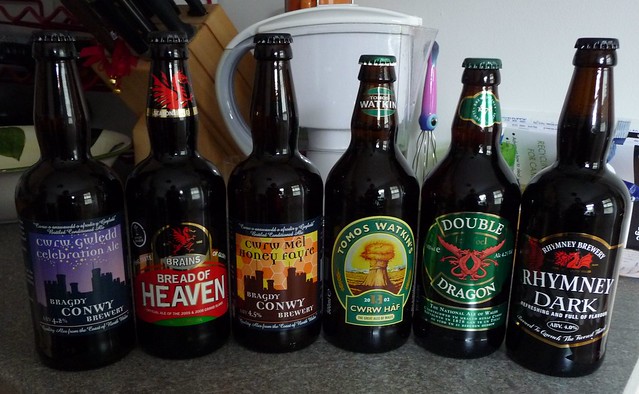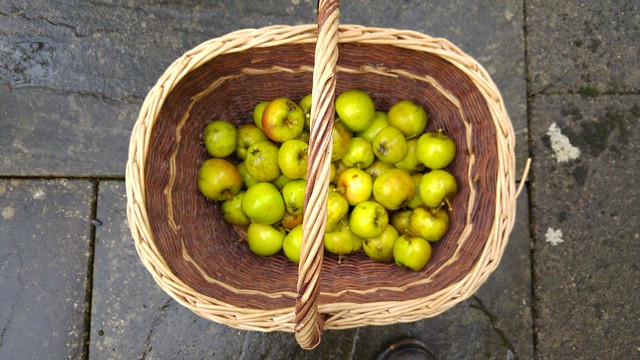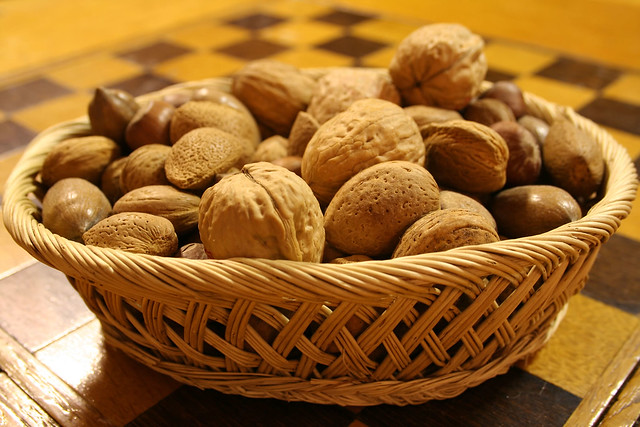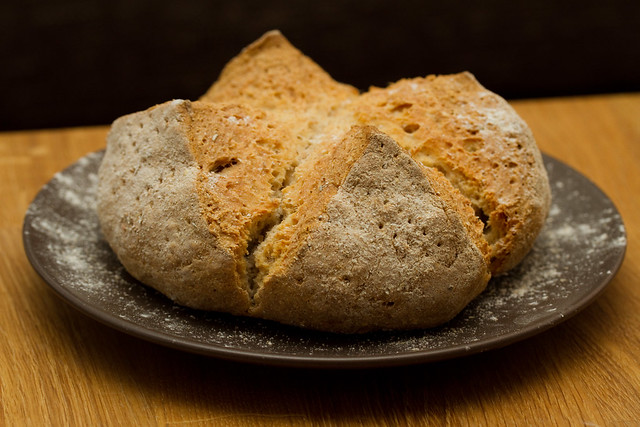Words for ale, beer and related words in Celtic languages.
| Proto-Celtic | *lindo- = drink |
|---|---|
| Gaulish | linda = drink |
| Old Irish (Goídelc) | linn [ˈl͈ʲin͈ʲ] = drink, liquid, brew, ale, beer, intoxicating drink lind = liquid, drink, ale |
| Irish (Gaeilge) | leann = (pale) ale, beer; liquid, fluid lionn = humour (of the body) lionndubhach = melancholy, depressed leannadóir = ale-merchant leannlus = hop leann bó = milk leann donn = brown ale leann dubh = stout leann piorra = perry leann sinséir = ginger ale leann úll = cider iarleann = small, weak beer seomra leanna = tap-room teach leanna = ale-house |
| Scottish Gaelic (Gàidhlig) | leann [l̪ʲãũn̪ˠ] / lionn [l̪ʲũːn̪ˠ]= ale, beer; humour (of the body); fluid, liquid lionn-dubh = dejection, melancholy lionn searbh = bitter (ale) lionn-ubhal = cider |
| Manx (Gaelg) | lhune = ale, beer lhune doo = stout, porter lhune freillagh = lager lhune jinshar = ginger beer lhune ooyl = cider lhune peear = perry lhune sharroo = bitter (beer/ale) shamyr lhionney = bar room, lounge bar, tap room thie lhionney = ale house, pub |
| Middle Welsh (Kymraec) | llynn = drink |
| Welsh (Cymraeg) | llyn [ɬɨ̞n/ɬɪn] = drink, beverage, intoxicating liquor, cordial, juice; liquid, humour llyn afalau = cider, apple juice llyn y bustl = bile llyn gellyg = perry |
| Old Cornish | lin = fluid, liquid, lotion |
| Cornish (Kernewek) | lin = fluid, liquid, lotion lin-golghi = washing detergent lin leur = floor cleaner lin sebon = detergent, washing-up liquid |
| Old Breton | linnou = drink |
| Breton (Brezhoneg) | liñvenn = liquid |
Etymology: possibly from the Proto-Indo-European *liH-nd-o- [source].
| Proto-Celtic | *kormi, *kurman = beer |
|---|---|
| Gaulish | curmi, curmím, κόρμα (kórma), κούρμι (koúrmi) = beer |
| Old Irish (Goídelc) | cuirm = ale, beer |
| Irish (Gaeilge) | coirm, cuirm [kɞɾʲəmʲ] = ale, drinking-party, feast, banquet coirmeach = ale-drinking, festive coirmtheach = ale-house coirm cheoil, ceolchoirm = concert |
| Scottish Gaelic (Gàidhlig) | cuirm [kurʲum] = feast, banquet, entertainment; ale, beer (archaic) co(i)rm = ale, beer cuirm-chiùil = concert cuirm-chnuic = picnic |
| Manx (Gaelg) | cuirrey = banquet, feast cuirrey kiaull = concert |
| Proto-Brythonic | *kuruβ ̃, *kurβ̃ = beer, ale |
| Old Welsh | curum = beer, ale |
| Middle Welsh (Kymraec) | kuref, kwryf, kwrwf, cwrwf, cyryw = beer, ale |
| Welsh (Cymraeg) | cwrw [ˈkʊru / ˈkuːru] = beer, ale cwrw Adda = Adam’s ale, water cwrw casgen = draught beer cwrw coch = brown ale cwrw cychwyn = a drink of beer on setting out on a journey, one for the road coesau cwrw = a drunken gait (“beer legs”) |
| Old Cornish | coref, coruf = ale, beer |
| Middle Cornish (CerneweC) | cor = ale, beer coref = ale, beer |
| Cornish (Kernewek) | korev, kor = ale, beer |
| Breton (Brezhoneg) | korev = ale, beer |
Etymology: possibly from the Proto-Indo-Eurpean *kremH- (to burn) [source], or *ḱr̥h₃-m- (porridge, soup), or *ḱh₁erh₂- (to mix) [source].
The Latin word cervēs(i)a (beer) comes from the same Proto-Celtic root, as do words for beer in several Romance languages, including Spanish (cerveza), Portuguese (cerveja), Galician (cervexa) and Catalan (cervesa) [source].
More about words for beer in European languages.
| Irish (Gaeilge) | beoir [bʲoːɾʲ] = beer, a woman (rare, colloquial) beoir bhairille = draught beer beoir shinséir = ginger beer |
|---|---|
| Scottish Gaelic (Gàidhlig) | beòir [bjɔːrʲ] = beer beòir chaol = small beer roipean beòir = beer moustache |
| Manx (Gaelg) | beer = beer |
| Middle Welsh (Kymraec) | ber, berr, berre = beer, ale |
| Welsh (Cymraeg) | bir = beer, ale |
| Breton (Brezhoneg) | bier = ale, beer |
Etymology (Irish, Scottish Gaelic and Manx): from the Old Norse bjórr, from the Proto-Germanic *beuzą (beer), from the Proto-Indo-Eurpean *bʰews- (dross, sediment) [source].
Etymology (Welsh): from the English beer, from the Middle English bere (beer), from the Old English bēor (beer), from the Proto-West Germanic *beuʀ (beer), from the Proto-Germanic *beuzą (beer) [source].
Etymology (Breton): from the French bière (beer), from the Old French biere (beer), from the Middle Dutch bier/bēr (beer), from the Frankish *bior (beer), from Proto-Germanic *beuzą (beer) [source].
Words marked with a * are reconstructions.
Sources: Wiktionary, Am Faclair Beag, Online Manx Dictionary, Teanglann.ie, eDIL – Electronic Dictionary of the Irish Language, In Dúil Bélrai English – Old Irish glossary, Geiriadur Prifysgol Cymru, Gerlyver Kernewek, Dictionaire Favereau, TermOfis, English – ProtoCeltic WordList (PDF), Etymological Dictionary Of Proto Celtic













